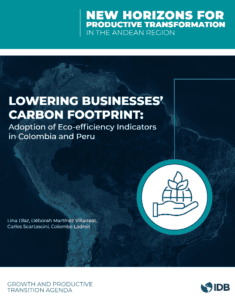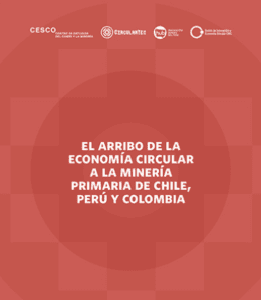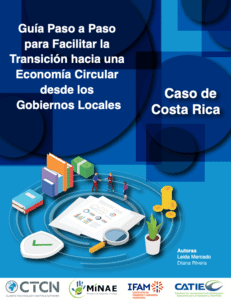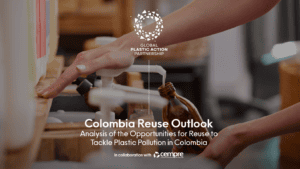 This report guides on implementing behavioral-based interventions to reduce companies’ carbon footprints. It uses Colombia’s textile sector and Peru’s plastics sector to demonstrate a practical approach, leveraging behavioral science to address barriers and promote environmental sustainability. A field experiment with MSMEs in these sectors showed that behaviorally enhanced communication and mentoring significantly increased the adoption of eco-efficiency indicators (EEIs). In Peru, 100% of the treatment group used the Green Tool, compared to none in the control group. In Colombia, adoption rates were 63% for the treatment group versus 8.33% for the control group, indicating that the mentoring sessions were the key to success.
This report guides on implementing behavioral-based interventions to reduce companies’ carbon footprints. It uses Colombia’s textile sector and Peru’s plastics sector to demonstrate a practical approach, leveraging behavioral science to address barriers and promote environmental sustainability. A field experiment with MSMEs in these sectors showed that behaviorally enhanced communication and mentoring significantly increased the adoption of eco-efficiency indicators (EEIs). In Peru, 100% of the treatment group used the Green Tool, compared to none in the control group. In Colombia, adoption rates were 63% for the treatment group versus 8.33% for the control group, indicating that the mentoring sessions were the key to success.
Challenges included small sample sizes, short program duration, and external factors like political unrest in Peru. Despite these, the intervention raised awareness among business leaders about decarbonization and encouraged a shift in focus from monetary values to environmental impact metrics. Future interventions should consider larger sample sizes, longer durations, and continuous support for better results. Accurate data collection and sharing of best practices can foster sustainable patterns. Behavioral interventions can promote pro-environmental behaviors and support global efforts to reduce carbon footprints.
Access the report here.




